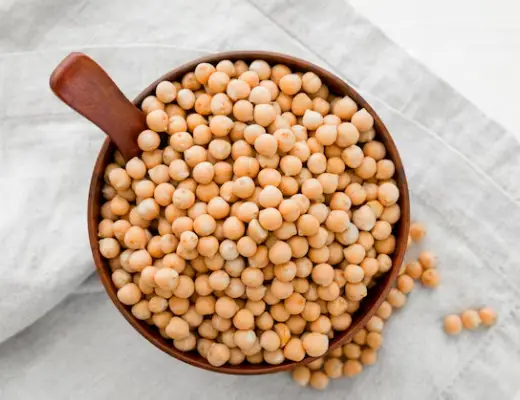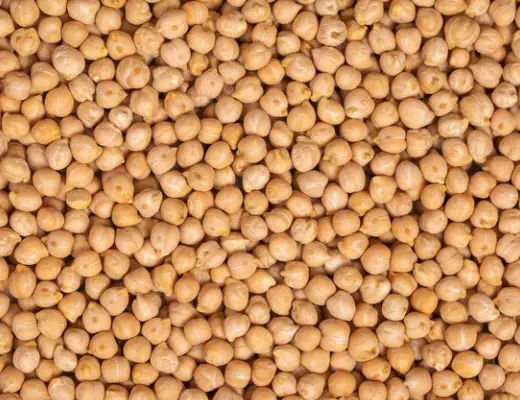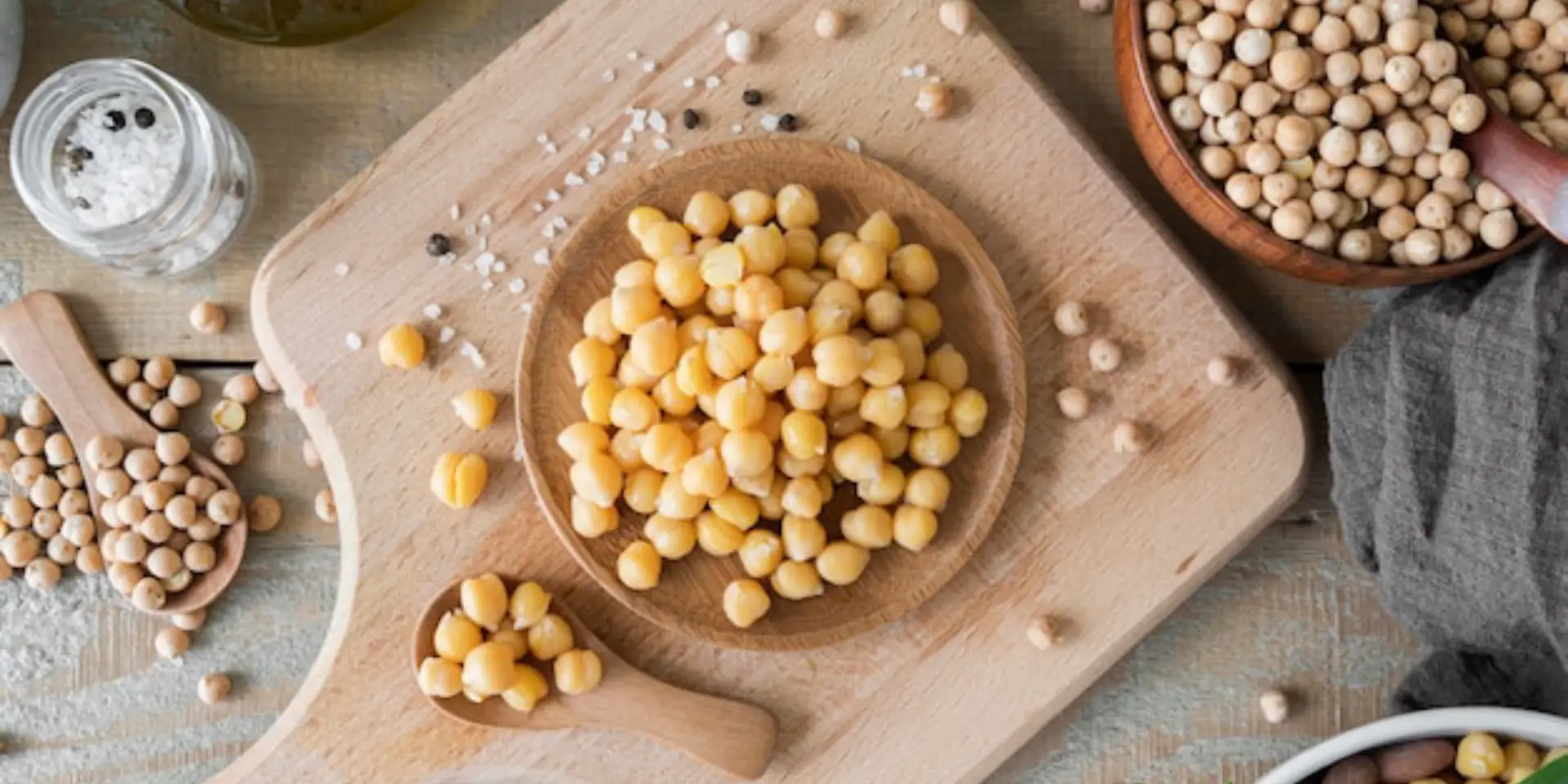Chickpeas, also known as garbanzo beans, have been a dietary staple for thousands of years, valued for their rich nutritional profile and numerous health benefits. As a versatile legume, chickpeas are packed with essential nutrients, making them an excellent addition to a balanced diet.
1. High in Protein and Fiber
Chickpeas are an excellent plant-based protein source, making them ideal for vegetarians and vegans. One cup of cooked chickpeas provides about 15 grams of protein, essential for muscle repair and overall body function (U.S. Department of Agriculture, 2020). They are also rich in fiber, with around 12.5 grams per cup, which promotes digestive health, prevents constipation, and helps maintain stable blood sugar levels (Harvard T.H. Chan School of Public Health, 2021).


2. Supports Heart Health
Regular consumption of chickpeas can contribute to heart health. They contain high amounts of soluble fiber, which helps lower LDL (bad) cholesterol and reduce the risk of cardiovascular diseases. Additionally, they provide magnesium and potassium, which help regulate blood pressure and improve overall heart function (American Heart Association, 2022).
3. Aids in Weight Management
The combination of protein and fiber in chickpeas promotes satiety, helping individuals feel fuller for longer and reducing overall calorie intake. A study published in Nutrients (2016) found that including legumes like chickpeas in a diet can support weight loss and prevent obesity.
4. Rich in Essential Micronutrients
Chickpeas are an excellent source of iron, folate, and B vitamins, which support energy production, red blood cell formation, and brain health (National Institutes of Health, 2020). They are particularly beneficial for pregnant women due to their high folate content, which helps prevent neural tube defects.
Conclusion
Chickpeas offer a wide range of health benefits, from improving digestion and heart health to supporting weight management. Whether consumed in hummus, salads, or soups, incorporating chickpeas into your diet is a simple yet effective way to enhance overall well-being.
References
American Heart Association. (2022). Dietary fiber and heart health.
Harvard T.H. Chan School of Public Health. (2021). Legumes and health benefits.
National Institutes of Health. (2020). Iron and folate in plant-based diets.
U.S. Department of Agriculture. (2020). Nutritional content of chickpeas.
Nutrients Journal. (2016). Legume consumption and weight management.

